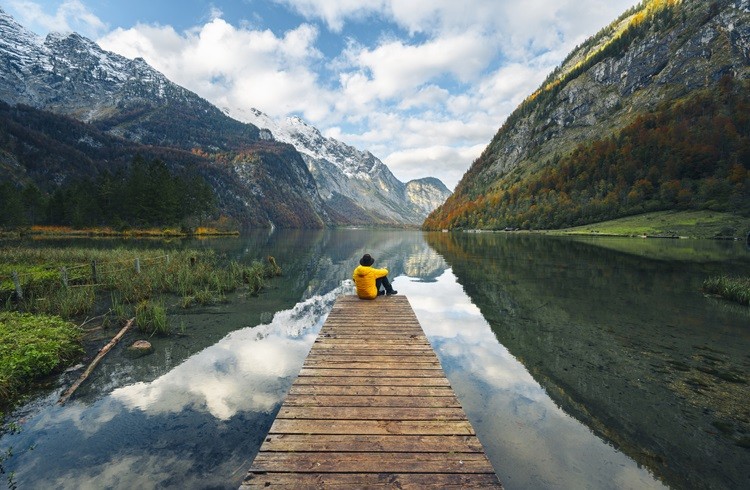A recent survey conducted by Adventure.Travel in collaboration with World Nomads reveals key shifts in travel preferences and priorities for 2024, highlighting significant Adventure Travel Coverage Trends. The findings indicate that while the desire to travel remains strong, external factors like regional instability and economic pressures are heavily influencing traveler decisions. Notably, “clever cost savings” are replacing “revenge travel” as the dominant theme, signaling a more considered approach to exploration in the coming year.
Key Factors Shaping 2024 Travel Choices
The survey, which polled members of the Adventure.Travel and World Nomads communities, found that an overwhelming 96% of respondents are planning to travel in 2024. However, their choices are being significantly shaped by a trio of major concerns:
- Regional/Political Instability (44%): Global events are weighing heavily on travel decisions, with instability cited as the top influencing factor. This suggests travelers are carefully considering the safety and security aspects of their chosen destinations.
- Travel Costs and Inflationary Pressures (43%): Economic realities are a close second, with rising travel costs and general inflation impacting budgets. This is leading to more strategic travel planning and a focus on value.
- Overtourism (24%): Concerns about crowded destinations are also playing a role, indicating a growing preference for less-traveled locations and more sustainable tourism practices.
 Man sitting on boat pier in front of scenic lake reflecting peaceful travel amidst global uncertainties
Man sitting on boat pier in front of scenic lake reflecting peaceful travel amidst global uncertainties
The Rise of Clever Cost Savings Over Revenge Travel
Christina Tunnah, General Manager of Marketing and Brands at World Nomads, notes a significant shift in traveler behavior. “Despite economic pressures, travelers are far from ready to give up traveling in 2024,” she stated. Instead of abandoning travel plans, people are adapting. The survey reveals that 22% are willing to cut back on other significant purchases to prioritize travel experiences, demonstrating a strong value placed on exploration and personal enrichment.
This adaptation is further evidenced by the finding that 27% of respondents plan to take fewer trips in 2024. There’s a notable 10% decrease in travelers planning four or more trips compared to the previous year (dropping from 33% to 23%). However, this doesn’t translate to decreased spending. A significant 86% of travelers intend to spend the same or more on their travels compared to last year, indicating a trend towards fewer but potentially longer and more meaningful trips.
Travel Insurance: A Must-Have in 2024
Ongoing travel disruptions, particularly airline delays and cancellations, remain a major concern for travelers. Almost half (45%) of respondents cited these disruptions as their top travel stressor, followed by the cost of travel (37%) and dealing with crowds (28%). Health concerns and safety anxieties also rank high.
In response to these stressors and rising travel costs, the survey indicates a growing recognition of the importance of travel insurance. A significant 87% of respondents are likely to purchase travel insurance in 2024, a notable increase from 79% in 2023. Emergency medical coverage (68%), trip cancellation protection (40%), and 24/7 emergency assistance (28%) are identified as the most crucial benefits sought by travelers.
Adventure and Exploration Lead Travel Motivations
The survey highlights a strong inclination towards adventure and immersive travel experiences. A substantial 67% of respondents are most interested in exploring new destinations, while over half are driven by active/adventure pursuits and nature/wildlife encounters.
Popular adventure activities include hiking (63%), snorkeling (28%), and kayaking/rafting (22%). Jason Reckers, Chief Operating Officer at Adventure.Travel, confirms these trends, adding that their tour operator members are also seeing increased interest in cycling and cultural immersion experiences. This data reinforces the growing demand for adventure travel coverage that caters to these specific activities and interests.
Destination Preferences: Europe Still Leads, Asia Pacific Gaining Ground
Europe remains the most sought-after destination for 2024, with 54% of respondents planning trips there. However, there’s a clear surge in interest in destinations further afield. Half of the respondents are planning travel to Asia, Southeast Asia, Australia, or New Zealand, compared to just 37% the previous year.
This shift is also reflected in World Nomads’ policy sales data. While Europe is still the top destination, Asia is now second, followed by Africa and South America, indicating a diversification of travel patterns. Instability in regions like the Middle East and parts of Europe is contributing to this shift, with travelers increasingly looking towards Asia, the Pacific, and Africa. Furthermore, the rise of remote work is fueling a trend towards longer trips, with a doubling in the number of travelers planning extended trips of three months or more.
Sustainability: A Growing Consideration
The survey offers encouraging insights into the increasing awareness of sustainable travel. Over half of respondents (54%) intend to support local economies by shopping and eating locally, and 39% plan to utilize public transportation more frequently. Additionally, 31% are consciously avoiding over-touristed and environmentally sensitive destinations. Only a small fraction (16%) reported no changes in their behavior concerning climate change or sustainability. This signifies a move towards more mindful and responsible travel practices, suggesting that adventure travel coverage may also need to adapt to support sustainable tourism initiatives.
In conclusion, the adventure travel coverage trends for 2024 are shaped by a complex interplay of global factors. Travelers are prioritizing experiences while navigating economic pressures and geopolitical uncertainties. Clever planning, a focus on authentic adventures, and the increasing importance of travel insurance define the current landscape, pointing towards a more thoughtful and resilient approach to exploration.
